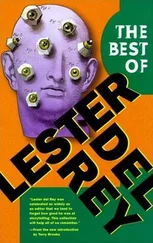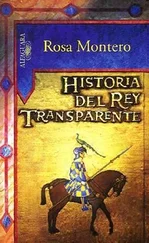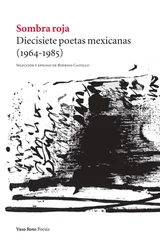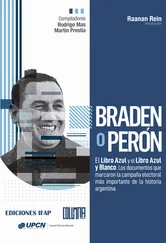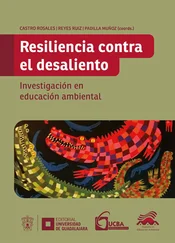One morning I was out for an aimless stroll when suddenly I realized that I was right near the front door of the Pensión Carlos. I heard a metallic click (a sound that will perhaps be familiar to some of you one day: the tapping of a walking stick on cement), and then I saw old Blanco, the fat guy from the airport, who didn’t actually look so old or so fat any more. We passed each other on the sidewalk, barely exchanging glances, without any kind of greeting. He was very tall and ungainly.
I walked a few more steps. To him I was a perfect stranger. But was it really him? I wasn’t sure. I stopped; I had to talk to him. I could use the pretext of the books, to begin with. I turned around and was going to say something, but the street wasn’t a good place for the kind of conversation I had in mind, so instead of accosting him I rang the bell of the pensión.
I took out a card, wrote my telephone number, and signed my name. The cleaner opened the door. I asked her to give the card to Señor Blanco, and she took it with a grunt.
I went back out into the street just in time to see him turning the corner. Instead of following him, I continued with my aimless stroll, but the relative calm I had enjoyed until that chance encounter was utterly shattered.
This happened on a Monday, I think, but since there wasn’t a reading, I opened the bookstore around three.
He was the first person to come in. He wished me a good afternoon.
“Señor Blanco? You got my message?”
He approached the counter unhurriedly.
“I’m Otto Blanco, yes, but I didn’t get any message.” He smiled.
I told him my name and we shook hands.
“I left my card at your pensión a couple of hours ago.”
“Ah,” he said with a worried look. “Is it to do with Ana?”
Ana, I thought. So she didn’t lie to me.
“Yes, but don’t worry.” I gestured in a way that must have been incomprehensible; it was a kind of involuntary reflex. I laughed. “It has to do with her. I believe she is your. . wife?”
He frowned.
“Did she say that?”
After an awkward moment, we both smiled.
So was it Ahmed who lied? I wondered.
“Are we talking about the same person? Ana Bruguera?”
“Yes,” he replied. “Ana Severina Bruguera Blanco.”
“She told me she lived with her father. But excuse me, Señor Blanco, I don’t mean to pry.”
“I’m her mother’s father, her grandfather. But it’s true that I’ve been a father to her, really. And. .”
Another awkward silence.
“It’s about stolen books, isn’t it?”
A moment later I was showing him the long list of books that I had stuck to the column next to the cash register. He began to read it slowly, with a look of satisfaction and a new sharpness in his watery eyes.
“We have read all these books together,” he said, having reached the end of the list and turned to me. “I didn’t know where they came from. I’m sorry. She doesn’t tell me everything, you know.”
“She’s your granddaughter, you say.” I couldn’t believe it, but I dearly wanted to.
“Won’t you dell me how mush we owe you?” Suddenly his accent sounded very strange. Asian or maybe Central European, I thought. It was as if the nerves and muscles supporting his Spanish had momentarily relaxed.
“That’s not what I wanted to talk about. Actually, I’d like to see Ana again.”
He swallowed and blinked. “And why would you want to see her?”
The question made me feel like a schoolboy. I wasn’t going to tell him that I was in love. I couldn’t think of anything to say.
“You’re not the first bookseller to fall in love with her,” said the old man. “If you change your mind, send the bill to me at the pensión. ”
“Are you very busy?”
He looked at me blankly.
“Me? I’m an idler, more or less. No, I have nothing at all to do.”
I invited him to have a drink in the café on the corner. “As you can see, it’s a slow day here. Just let me shut the store. I’m pretty much an idler myself,” I admitted.
We walked in silence to the café. Señor Blanco didn’t look at all as I remembered him. He was strongly built, with a broad forehead and a tanned face, although his hands were pale. We both ordered black tea with lemon.
“I ought to begin by pointing out, though it shouldn’t come as a surprise, that we’re really quite ordinary people. I have my ideas, and she goes along with them, but in her own way, of course. Books have always been my life. Both my father and grandfather lived exclusively from books, each in his way — books of all sorts. And I’m not speaking metaphorically: books are our sole means of subsistence,” he said and then fell silent.
“It’s very different for me. Neither my father nor my grandparents were interested in books. The only person who read in our house was my mother.”
I felt like a neophyte who has just met his master, the guide he needs to reach the source of wisdom.
Señor Blanco looked at me with what I thought was compassion. He continued: “We have been accused of all sorts of vices and misdemeanors, even crimes.” (Was that why she had said “Life is shit”? I wondered.) “We have been called secret agents and confidence tricksters; we have been taken for spies using books to transmit coded messages; it has been said that we collect editions or copies of books related to all sorts of crimes and scandals, that we purvey pornography of one sort or another, or what have you. But the only thing we do consistently is use books to make a living. Let me tell you something. One of my uncles — he was crazy, it’s true, but he also had moments of genius — believed, or said he believed, that books, the objects that we call books, are animated by a kind of collective spirit. Like machines and computers in science-fiction fantasies, and the plants from which drugs are extracted, and even certain metals, like gold and iron. He talked about how books struggle for domination in certain regions of the planet, a phenomenon whose trends and flows could be tracked using one of those maps with colored arrows to indicate things like the spreading of ethnic groups or languages over the course of history. Migrations, invasions, outbreaks, extinctions. There are wars between different kinds or genres of books, he said. And, as in real wars, the best don’t always win; but for us, in the end, there are no losers, although they all fade away. We use these ebbs and flows the way a sailor uses ocean currents. We exploit them as best we can, beyond literary good and evil, so to speak. We, that is, my granddaughter and I, are still navigating the tides and currents of books.”
When he came to the end of his speech we sat there for a few minutes in silence, but the communication between us was still going on, and I was beginning to feel very much at ease in the old man’s company.
“You’re right,” I confessed. “I’m like the other booksellers. I’ve fallen in love with your granddaughter.”
His face changed; now he seemed distant and wary.
“I don’t know if she’s slept with you. If she has, you’ve reason to be proud. And now, if you’ll excuse me. .” He got to his feet and so did I. “I would have liked to be able to say mon frère, ” he said. “Goodbye.”
I sat down again and stayed there, perfectly still, as if I’d been hit on the back of the neck with a blunt instrument, while the unlikely grandfather of Ana Severina Bruguera Blanco receded into the distance and disappeared.
Our unexpected and implausible encounter was to be continued that night in a dream. We were traveling on a mountain road in a rickety old bus.
“But tell me,” I said to the old man, “where is she?”
Читать дальше



